Difference Between Pickups and Trucks – How Do They Differ?
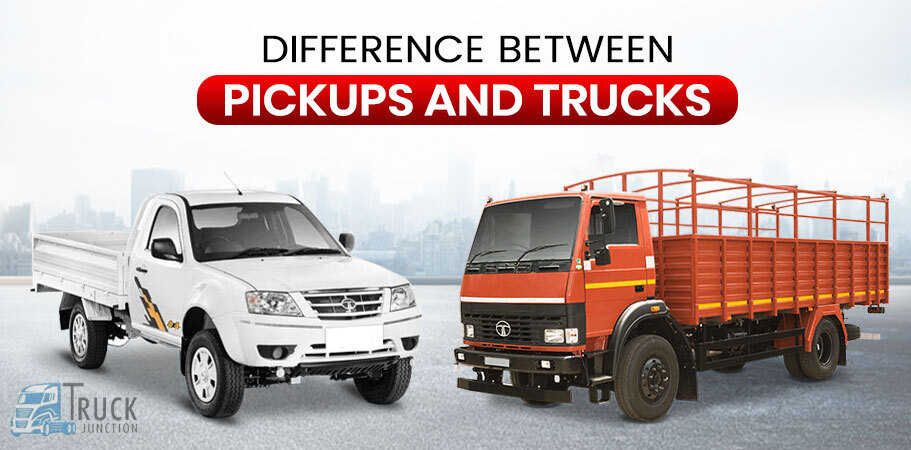
In recent times, trucks and pickups are two words that have become synonymous with each other. However, the fact that all pickups are trucks but not all trucks are pickups remains the same. Ergo, we have brought you an in-depth look at pickup vs truck that remains different from each other yet under the same umbrella.
We all know that all pickups and trucks, but not all trucks are pickups. The most significant representation of their major gap is their different load-bearing capacities. The pickup trucks are everyday utility commercial vehicles that are great for hauling light- to medium-weight freight items around the city. Pickup trucks are ideal entry-level commercial vehicles for anyone who needs or wants to break into the transport industry. On the flip side of the coin, trucks are an ideal option when transporting heavy cargo materials around and outside the states. In addition, the trucks include various types and categories within themselves, whereas the pickup is one of the categories that the pickup truck is a part of.
Before we discuss the differences between trucks and pickups, let’s first discuss pickup vs truck separately.
Difference Between Pickup vs Truck
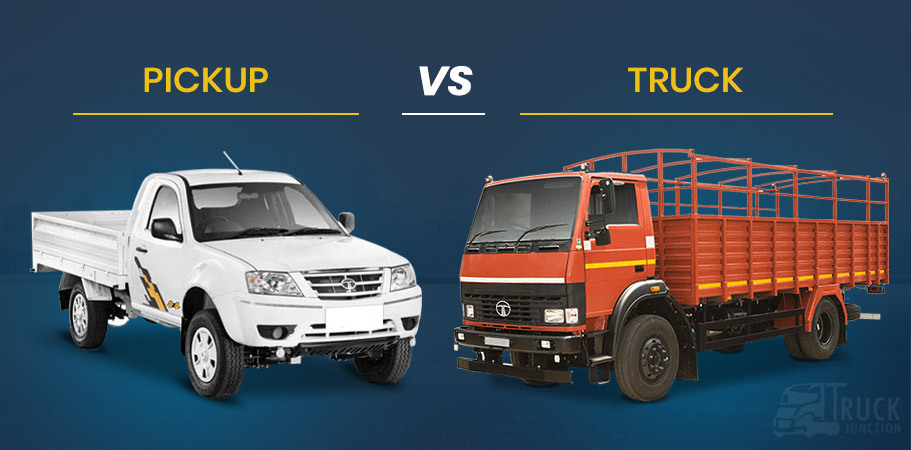
Trucks come in a variety of sizes. Trucks are ideal for transporting stuff, not people. This category includes pickup vehicles; however, many trucks are not classified as pickups. On the other hand, pickups are made of 2 pieces: a cab and a cargo bed, lying on a solid chassis of the trucks.
Among all these considerations, interior space is the most important right now. Even with a single cab, you can fit at least a medium-sized luggage behind the seats. And that’s without mentioning the absurd double-cabs that have a full-sized trunk inside. Furthermore, you can increase the cab size if you need to because the two parts can be separated. This can come in handy when carrying a cow in the back if that’s what your business requires.
Simply put, a pickup truck is a truck with an open box and a separate frame/cab. Pickups are built on trucks, constructed out of two sections, and typically have more inside room. They are a scaled-down version of a truck made for households or small companies. Pickup trucks might be small, medium-sized, full-sized, or even heavy-duty vehicles.
Trucks are massive and tricky to manoeuvre. On the other hand, pickups are much more comfortable, manoeuvrable, and easy to drive than heavy duty trucks. A heavy-duty truck is preferable over a smaller pickup truck if your work requires you to carry or haul heavy objects for an extended period daily.
What Is A Pickup?
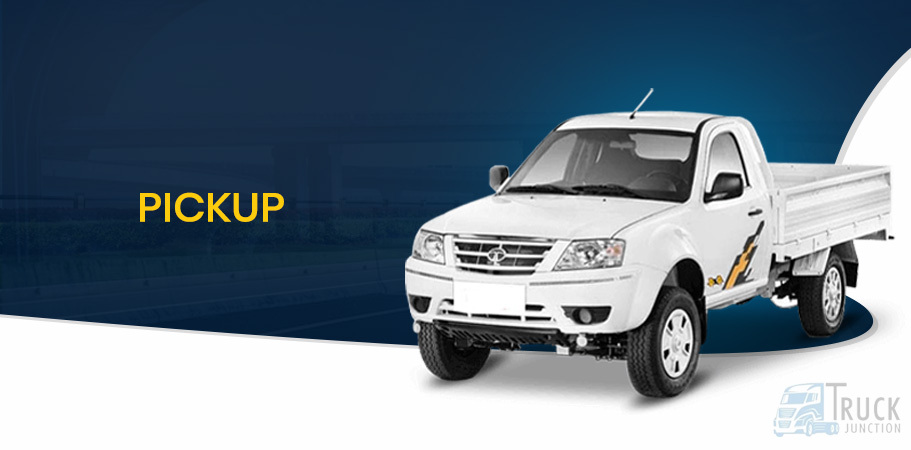
A pickup is a lightweight motor vehicle that follows a thoughtful design to suit various needs. It has an enclosed cabin in the front of the pickup with an open flatbed in the rear with an open top. In addition to this, the cargo bed has 3 fixed small walls surrounding either side of the cargo bed. However, the one on the rear has a gate that can be opened outwards to facilitate effortless loading and unloading of the cargo materials.
The cargo box behind the cabin follows a design and construction to make it withstand and carry maximum loads upon it. The rigid body structure lets the driver haul loads without worrying about the longevity and the damage it might cause to the truck’s cargo deck.
Pickup trucks typically fall into the 2.5-tonne GVW category and are a frequent choice among fleet operators for various logistical and cargo-carrying tasks. Pickups usually carry 1-2 tonnes of payload and are the most popular small commercial vehicle segment in yearly sales volume.
So, What is a Truck?
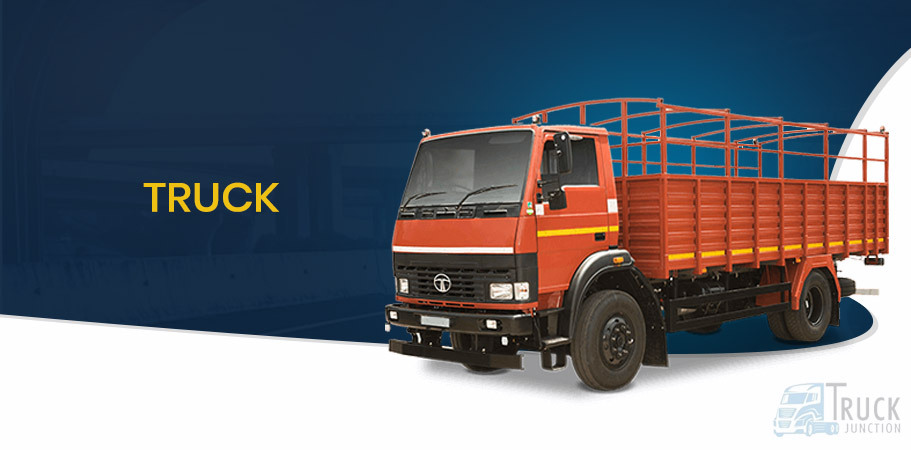
A truck is a vehicle that transports goods, carries high payloads, and carries out other tasks simultaneously. Trucks in the market come in a vast range of sizes, capacities, and configurations. Still, the vast majority have a body-on-frame structure and a cabin separate from the vehicle’s load body. As a result, commercial trucks, such as waste trucks, fire trucks, concrete mixers, and suction excavators, can be huge, powerful vehicles that can also be outfitted with specific equipment.
Despite having similar names in books, pickup trucks are made for different purposes. Here, we examine the specific variations between pickup vs truck.
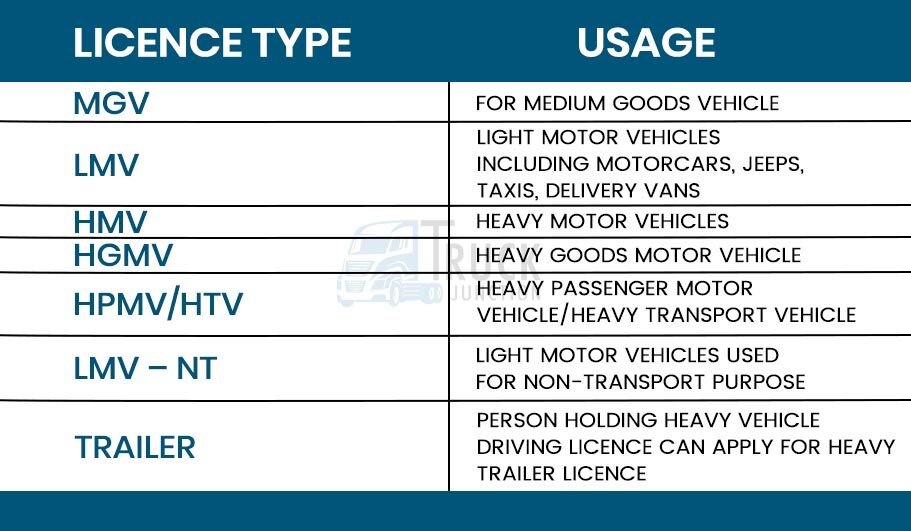
Cargo Capacity
The capacity to carry freight is among the most critical distinctions between truck vs pickup. A pickup truck’s typical feature is an open or closed box for carrying cargo. However, tractors, big rigs, or semi-trucks do not have a cargo hold. Instead, semi-trucks have a fifth wheel that attaches to a trailer, making the arrangement a tractor-trailer combination.
The average payload capacity of the pickup ranges fairly between 1000 kg to 2000 kg. In contrast, a typical truck’s highest payload capacity could run up to 55 tonnes in the case of semi-articulated trailers and 49 tonnes in the case of other rigid vehicles.
Licensing
Many commercial driving licence types exist depending on the type of CV one intends to drive. For instance, a CDL for an HMV allows a person to legally operate a bus, whereas a CDL for LMVs allows someone to legally drive a car, jeep, or delivery van. Pickup vs Truck, another vital distinction lies in its licensing. A list of commercial driving licence categories is shown below.
Handling
Pickup trucks are similar to large cars because of the similar driving experience. They are popular for providing a superior driving experience on muddy roads, steep inclines, and more, thanks to their increased on- and off-road capabilities.
Pickups seem safer to drive on busy roads because they have a lower blind spot than larger trucks. If you’ve ever driven a large rig, you know that they are more challenging to control than pickups. Despite the seeming rapidity with which tractor-trailers hit the road, the driver is constantly making calculations. Because big trucks have numerous blind spots, the driver must keep an eye on the back and sides of the vehicle while maintaining a straight-ahead gaze. Semi-trucks must maintain a significant following distance from other vehicles because of their size and lack of the pickup’s off-road capability.
Semi-trucks are particularly hazardous to drive on steep inclines since they must slow down to ensure their cargo does not fall over. Driving your agile pickup makes you feel on top of the world, but a trucker must plan every step to ensure the truck delivers its cargo in one piece and promptly.
Safety
Large trucks have the most advanced safety measures of any vehicle on the road, despite their poor reputation. Because they are designed for heavy-duty labour, most pickup trucks have good safety records. However, due to their height, semi-trucks appear to be more dangerous. Compared to shorter vehicles like pickups and sedans, a trucker has a long line of sight and can see further ahead. This enables drivers of trucks to prevent problems before they arise rather than reacting after the incident.
Fatigue is the primary threat to the massive truck’s safety. Most people are unaware that trucking is one of the most stressful vocations, so it’s not surprising that most fatal truck accidents occur when the driver falls asleep behind the wheel. When the tractor cannot manage the trailer’s sway, big rigs might roll over due to a centre-of-gravity issue. Because of how they are used and designed, pickups have a higher safety record.
Speed
Pickup vs truck, in terms of them reaching their maximum speeds vary greatly. Pickups offer a good blend of utility, safety, and speed. In the majority of pickups, reaching speeds of up to 100 mph can be done without sacrificing comfort or safety.
However, there remains no such luxury for trucks. Big trucks are optimise to securely transport their personnel and goods from point A to point B.
Additionally, big trucks take longer to gain velocity than smaller vehicles do. They take longer to reach their desired speed if they press the brakes needlessly. Unfortunately, neither luxury is possible given their hectic schedule. Now pair that with your pickup, which can accelerate to 60 mph in less than 6 seconds.
Pickup vs Truck: Differences At A Glance
| Particulars | Pickup | Truck |
| Cargo Capacity | Ranges fairly between 1000 kg to 2000 kg | Ranges fairly between 49 tonnes kg to 55 tonnes kg |
| Licensing | MGV licence is required | HGMV licence is required |
| Handling | Easy to manoeuvre, lower blind spots | Difficult to manoeuvre, higher blind spots |
| Safety | Higher safety due to size and loads they carry | Comparatively lower safety aspects due to big size and higher loads |
| Speed | Can reach peak speed easily without sacrificing comfort and safety | Takes a longer time to reach its maximum velocity |
Conclusion
Flatbeds, utility/service trucks, and construction trucks are the best types of trucks for customers who require a truck for commercial purposes. Pickups come equipped with everything you need right out of the box. However, regular trucks typically only have the bare necessities since their primary function is to carry or load. Despite often having better payload and towing capabilities, trucks may have lighter body weight.
Pickup trucks help carry out daily tasks because they can tow, haul, and carry a variety of objects. Pickups are more practical than standard cars since you can load stuff you cannot get in a car’s passenger compartment. Additionally, there is no need to give up passenger space to transport the cargo.
A pickup, however, is not large enough to handle massive towing jobs and significant freight for heavy employment, unlike a conventional truck. As a result, pickups are a typical choice for everyday last-mile delivery transportation, whereas standard trucks are for professional or commercial activities.
With this in mind, we hope to have helped to deliver all the information you might need to understand the basic differences between pickup vs truck.
Related Blog
Tata Yodha 1700 BS6 VS Mahindra Bolero Pickup
Tata Intra V10 VS Ashok Leyland Dost+



